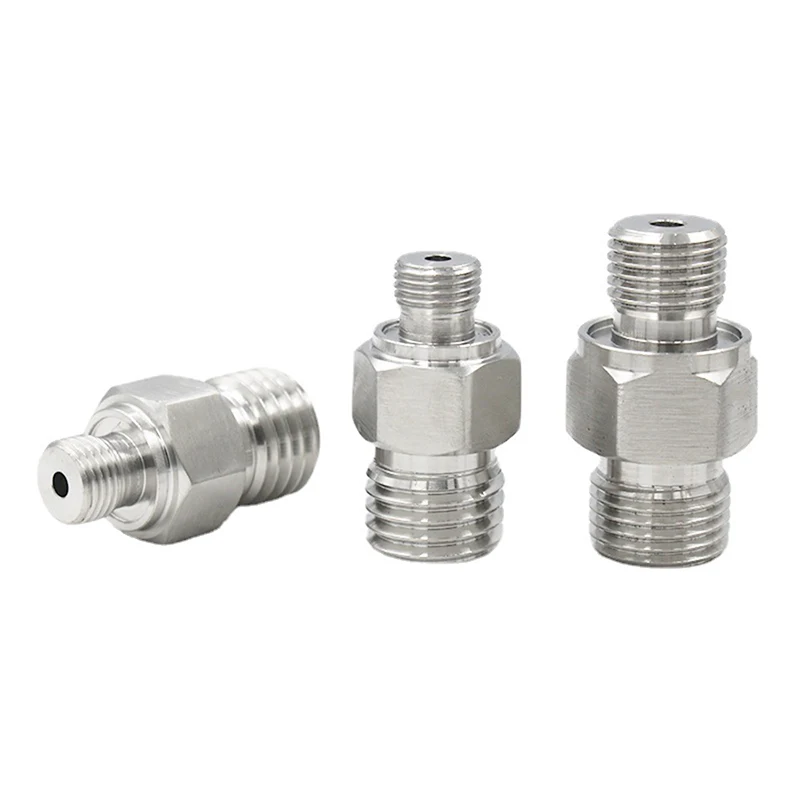What Materials Can be Used for CNC Machining?
2025-09-12
CNC machining is a versatile manufacturing process that can shape a wide range of materials into high-precision components. Selecting the right material is crucial for the functionality, durability, and cost-effectiveness of a part. At our factory, we work with an extensive portfolio of materials to meet diverse engineering requirements, from prototyping to full-scale production. This guide provides a detailed overview of the most common materials used in CNC machining, helping you make an informed decision for your next project.
Metals and Alloys
Metals are the most frequently machined materials due to their excellent mechanical properties.
Aluminum
Aluminum is renowned for its excellent machinability, good strength-to-weight ratio, and natural corrosion resistance. It is ideal for applications where weight reduction is critical, such as in aerospace and automotive industries.
i. Common Grades: 6061, 7075, 5083
ii. Key Properties: Lightweight, good thermal and electrical conductivity, easy to anodize.
Stainless Steel
Stainless steel is chosen for its superior strength, hardness, and exceptional corrosion resistance, making it suitable for medical devices, food processing equipment, and marine applications.
i. Common Grades: 304, 316, 303
ii. Key Properties: High strength, excellent corrosion resistance, can be passivated for enhanced durability.
Carbon Steel
Carbon steel offers high strength and wear resistance at a lower cost than stainless steel. It is commonly used for structural components and tools.
i. Common Grades: 1018, 1045, A36
ii. Key Properties: Very high strength, good wear resistance, requires plating or coating to prevent rust.
Titanium
Titanium possesses the highest strength-to-weight ratio of any metal and offers exceptional corrosion resistance. It is biocompatible, making it the standard for medical implants and a key material in aerospace.
i. Common Grades: Grade 2, Grade 5 (Ti-6Al-4V)
ii. Key Properties: Excellent strength-to-weight ratio, highly corrosion resistant, biocompatible.
Brass
Brass is valued for its excellent machinability, aesthetic gold-like appearance, and good corrosion resistance. It is often used for decorative fittings, electrical components, and plumbing parts.
i. Common Grades: C360 (Free-Machining Brass)
ii. Key Properties: Excellent machinability, good electrical conductivity, natural antimicrobial properties.
Plastics and Polymers
Engineering plastics are used for their electrical insulation, chemical resistance, and low weight.
1. ABS
A tough, impact-resistant plastic that is easy to machine and finish. It is a popular choice for prototypes, enclosures, and consumer products.
2. Nylon (PA)
Known for its high strength, wear resistance, and low friction. It is often used for gears, bushings, and other mechanical parts.
3. POM (Delrin/Acetal)
POM is a stiff, low-friction plastic with excellent dimensional stability, making it ideal for high-precision components like gears and bearings.
4. PEEK
A high-performance thermoplastic that retains its properties at high temperatures. It is used in demanding aerospace, automotive, and medical applications.
Material Selection Guide
| Material Category | Example Materials | Key Advantages | Ideal Applications |
| Metals | Aluminum 6061, Stainless Steel 316 | High strength, durability, heat resistance | Aerospace, automotive, industrial machinery |
| Plastics | POM (Delrin), Nylon, PEEK | Lightweight, corrosion resistant, electrical insulators | Gears, bushings, insulating components |
| Titanium Alloys | Grade 5 (Ti-6Al-4V) | Highest strength-to-weight ratio, biocompatible | Medical implants, aerospace components |
| Brass & Copper Alloys | Brass C360 | Excellent machinability, conductive, aesthetic | Electrical components, decorative fittings |
Our expertise at Zhihexing allows us to guide you through this selection process to find the optimal material for your specific application, ensuring your CNC Precision Metal Parts meet all performance and budgetary requirements.
Frequently Asked Questions (FAQs)
Q: What is the most important factor when choosing a CNC machining material?
A: The most critical factor is the intended function of the part. Consider the mechanical stresses (load, impact), operating environment (exposure to chemicals, moisture, temperature), and any regulatory requirements (e.g., biocompatibility for medical parts). Our engineers can help you balance these needs with budget and machinability.
Q: Can you machine parts from exotic or hard-to-machine materials?
A: Yes, our factory is equipped with advanced CNC machinery and our team has extensive experience machining a vast array of materials, including exotic alloys and high-performance plastics like PEEK and titanium. We implement specific tooling and machining strategies to ensure high-quality results.
Partner with Zhihexing for Your Project
Choosing the right material is the first step toward creating a successful product. At Shenzhen Zhihexing Electromechanical Co., LTD., we provide end-to-end manufacturing solutions. Our advanced CNC capabilities and deep material knowledge ensure that your CNC Precision Metal Parts are manufactured to the highest standards of precision and quality. Contact us today for a quote and let our experts help you select the perfect material for your next project.
